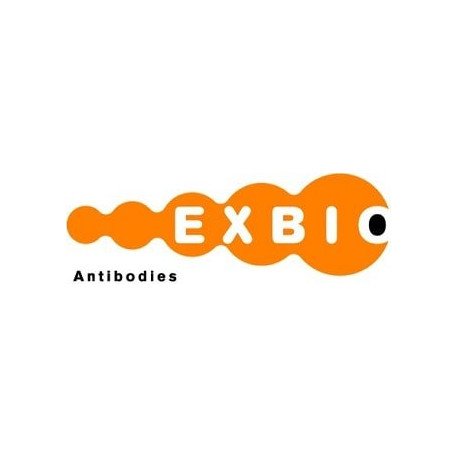Cart 0 Product Products (empty)
No products
To be determined Shipping
0,00 € Total
Prices are tax excluded
Product successfully added to your shopping cart
Quantity
Total
There are 0 items in your cart. There is 1 item in your cart.
Total products (tax excl.)
Total shipping (tax excl.) To be determined
Total (tax excl.)
Data sheet of Mouse Monoclonal to CD40
| Brand | Exbio |
| Product type | Primary antibodies |
| Reactivity | Human |
| Clonality | Monoclonal |
More info about Mouse Monoclonal to CD40
| Brand: | Exbio |
| Product no.: | 10-416-C025 |
| Product type: | Primary antibodies |
| Host species: | Mouse |
| Product name: | Mouse Monoclonal to CD40 |
| Antigen: | CD40 |
| Clonality: | Monoclonal |
| Clone: | HI40a |
| Isotype: | IgG1 |
| Immunogen: | Human CD40a |
| Format: | azide free |
| Specificity: | The antibody HI40a recognizes CD40 (BP50), a 48 kDa type I single chain transmembrane glycoprotein expressed on normal and neoplastic B cells, but not on terminally differentiated plasma cells. CD40 antigen is also present on Hodgkin's and Reed-Sternberg cells, follicular dendritic cells, some macrophages, basal epithelial cells and endothelial cells. |
| Categories: | CD and Related Antigens (Human) |
| Concentration: | 1 mg/ml |
| Storage buffer: | Azide free phosphate buffered saline (PBS), approx. pH 7.4; 0.2 μm filter sterilized. |
| Storage / stability: | Store at 2-8°C. Do not freeze. Do not use after expiration date stamped on vial label. |
| Background: | CD40 is a costimulatory molecule of the TNF receptor superfamily and is expressed on many cell types, such as B cells, monocytes/macrophages, dendritic cells, endothelial cells, fibroblasts or vascular smooth muscle cells. Interaction of CD40 and its ligand CD154 (CD40L) is required for the generation of antibody responses to T-dependent antigens as well as for the development of germinal centers and memory B cells. In monocytes/macrophages CD40 engagement induces production of pro-inflammatory cytokines and chemokines. CD40-CD154 interactions are also critical for development of CD4 T cell-dependent effector functions. CD40 links innate and adaptive immune responses to bacterial stimuli and serves as an important regulator affecting functions of other costimulatory molecules. |
| Purity: | > 95% (by SDS-PAGE) |
| Purification: | Purified by protein-A affinity chromatography |
| Product specific references: | *SúkenÃková L, ÄŒerný V, Novotná O, Petrásková P, Boráková K, Kolářová L, ProkeÅ¡ová L, Hrdý J: Different capacity of in vitro generated myeloid dendritic cells of newborns of healthy and allergic mothers to respond to probiotic strain E. coli O83:K24:H31. Immunol Lett. 2017 May 26. pii: S0165-2478(17)30110-4._x000D_ |
| General references: | *Wu W, Alexis NE, Chen X, Bromberg PA, Peden DB: Involvement of mitogen-activated protein kinases and NFkappaB in LPS-induced CD40 expression on human monocytic cells. Toxicol Appl Pharmacol. 2007 Dec 14_x000D_ _x000D_ , *Pearson LL, Castle BE, Kehry MR: CD40-mediated signaling in monocytic cells: up-regulation of tumor necrosis factor receptor-associated factor mRNAs and activation of mitogen-activated protein kinase signaling pathways. Int Immunol. 2001 Mar;13(3):273-83._x000D_ _x000D_ _x000D_ , *Grewal IS, Flavell RA: The role of CD40 ligand in costimulation and T-cell activation. Immunol Rev. 1996 Oct;153:85-106._x000D_ _x000D_ _x000D_ , *Oxenius A, Campbell KA, Maliszewski CR, Kishimoto T, Kikutani H, Hengartner H, Zinkernagel RM, Bachmann MF. CD40-CD40 ligand interactions are critical in T-B cooperation but not for other anti-viral CD4+ T cell functions. J Exp Med. 1996 May 1;183(5):2209-18._x000D_ _x000D_ _x000D_ |
| Related products: | - Mouse Monoclonal to CD41a - Mouse Monoclonal to CD41 / Platelet GPIIb - Mouse Monoclonal to CD41/CD61 (bovine) |
| Shipping condition: | Room temperature |


